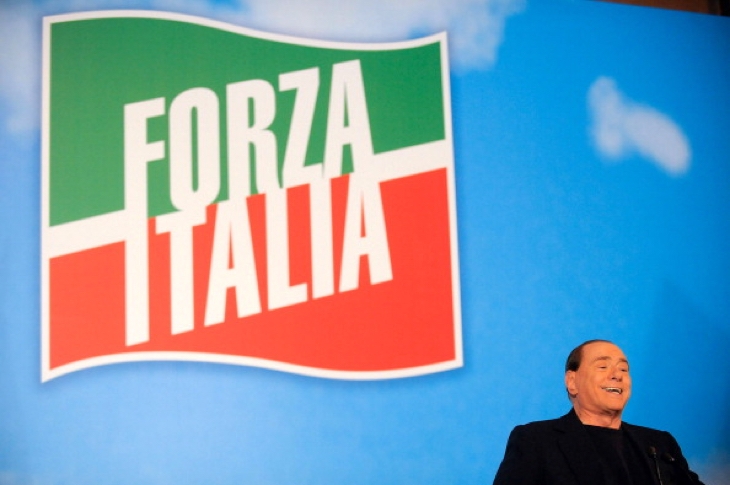Berlusconi’s policy is, in some ways, an interesting mirror of Marine Le Pen’s policy of allowing big business to use the euro while introducing a new currency to put in people’s pockets and use for the French national debt. It’s as if both of them are calling for something akin to John Major’s ‘hard ECU’, or at least a system of so-called parallel currencies. But it’s hard to imagine how these currencies could be truly parallel. The new national currencies would have to devalue substantially against the euro – and either they would float freely against it (in a rather un-parallel manner) or would be pegged at some level (requiring the inevitable return to periodic devaluations).
Berlusconi has a history of making anti-euro comments. Back in 2005, when he was a prime minister facing a general election the following year, he attempted to use the currency against his rival, the former president of the European Commission, Romano Prodi. He claimed that ‘Prodi’s euro has screwed everybody’. A few years later in 2012, while Mario Monti was in office, Berlusconi argued that if the ECB refused to print money, Italy should say ‘ciao, ciao’ to the euro. Soon afterwards he claimed he had been joking. But later that year he called for the ECB to become a lender of last resort to the eurozone, repeating his threats that Italy would otherwise have to leave the bloc. His party, Forza Italia, has also repeatedly criticised eurozone economic policies. And Berlusconi has himself accused EU officials of leading a ‘plot’ to force him from office during the eurozone crisis of 2011.
So is his intervention significant? Berlusconi’s comments on Monday about the need to reintroduce a national currency were not couched as a threat, nor has he since retracted them. He presented them as his settled position. And these comments come from the very prime minister who oversaw the introduction of euro coins and notes in Italy.
Although Berlusconi is widely dismissed as a buffoon, including by many Italians, he remains popular amongst a particular sector of the electorate. Berlusconi has a canny sense of politics – a survivor’s instinct – which has kept him at the political coal face despite scandal after scandal and gaffe after gaffe.
He is attempting to juggle two things: the belief of many Italians that falling out of the euro would be a vast economic shock, with the belief of others that the euro is crippling their economy. Berlusconi’s comments are an attempt to address these two seemingly irreconcilable views. He knows that calling for Italy simply to scrap the euro would be too big a step.
An Italian election remains a possibility this year, and will have to be held by the first half of 2018. At present, Forza Italia is polling on around 10 per cent, well short of anything like enough to form a government by itself. But there are two other significant Italian political parties committed to an (even clearer) anti-euro position: the Northern League and the Five Star Movement. Both of those parties have been polling well for quite a while and have been further emboldened by the fall of Matteo Renzi in last December’s referendum. While the label populist is somewhat over-used, the Five Star Movement is literally led by a comedian. Five Star are currently polling just shy of 30 per cent support – roughly around the same level as the governing Democratic Party. Northern League receive a shade more than Forza Italia. Although a direct alliance between Forza Italia, the Northern League, and Five Star is hard to envisage, the three parties together could well give the next Italian parliament a eurosceptic majority.
We are not at the point when anyone can confidently predict that Italy will leave the euro but equally it would be fool-hardy to rule it out completely. Across Italy, there is a sense of anger and disappointment from two decades of Italian economic stagnation. Youth unemployment is at around 40 per cent. The country is in decline and many see Europe as the problem not the solution. Berlusconi’s comments are yet another reminder that the eurozone remains precarious and that the EU faces existential challenges besides Brexit.
Henry Newman is Director of Open Europe






Comments